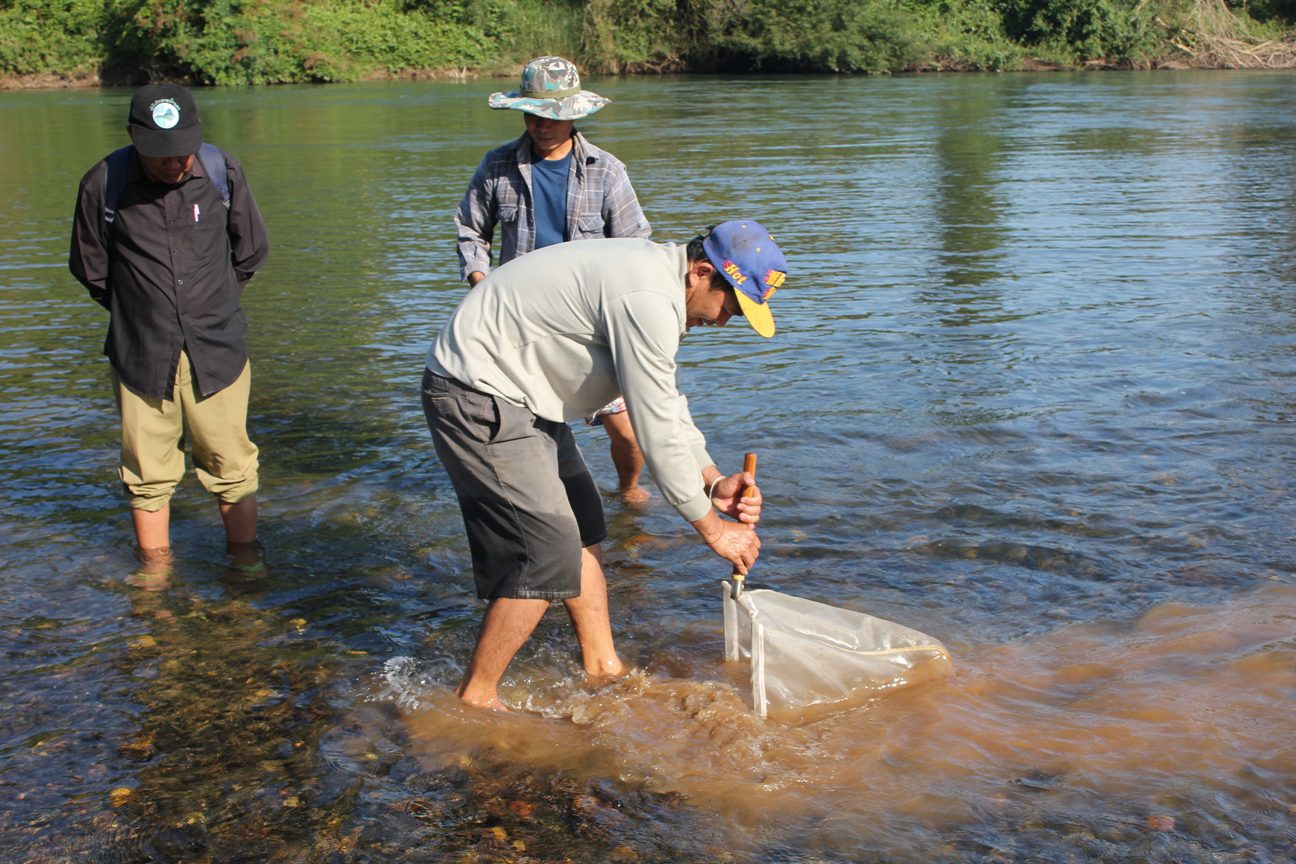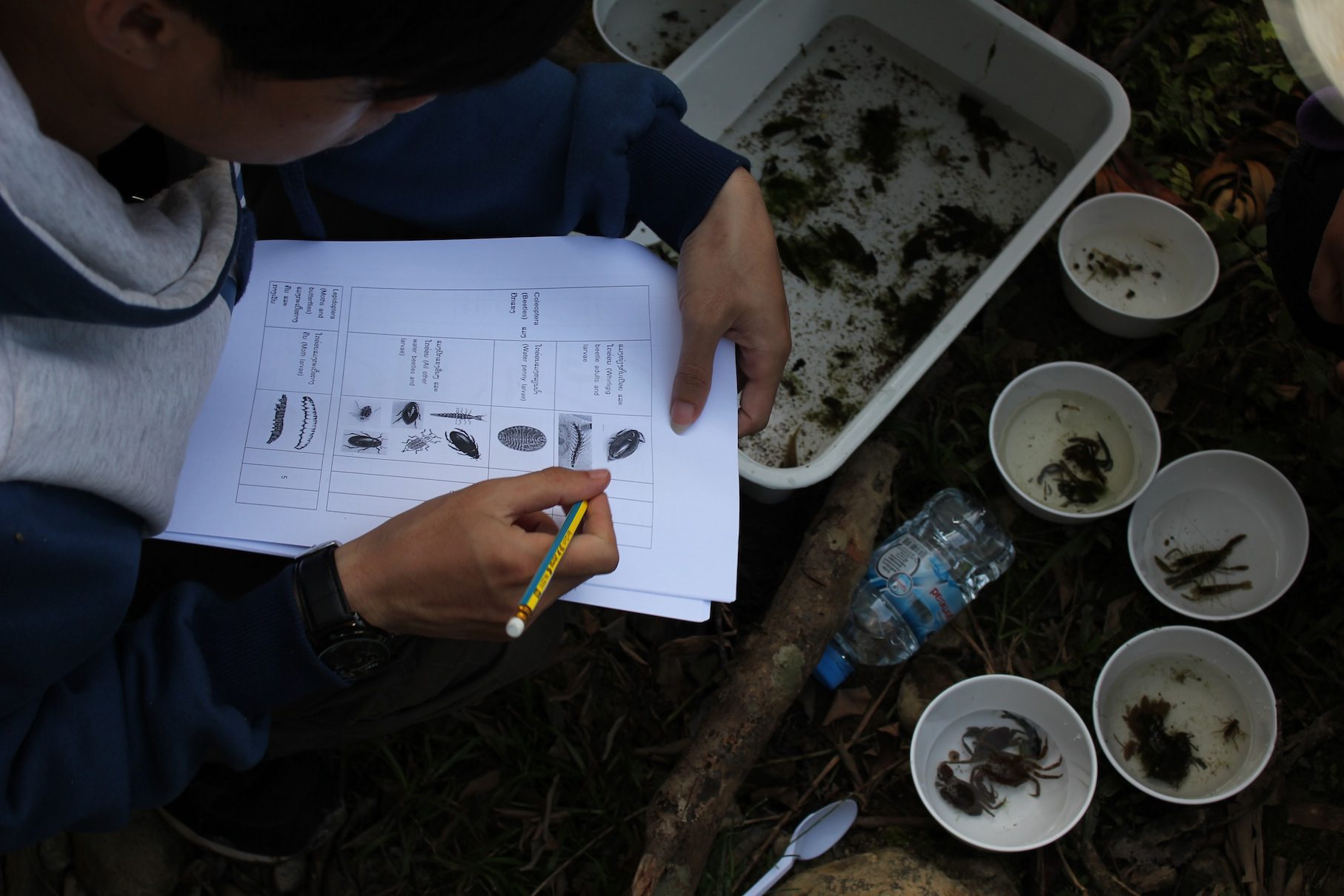Wednesday April 8, 2015

Small bugs can help tell a big-picture story about the conditions of their environment. FISHBIO is currently working on a participatory water quality monitoring program in Lao PDR with The Asia Foundation, which trains villagers in rural communities to monitor the health of their local streams based on the presence of different kinds of aquatic insects and other invertebrates. These macroinvertebrates serve as a “bio-indicator” that provide information about surrounding environmental conditions based on their sensitivity or tolerance. The Asia Foundation allowed participating communities to apply for “mini grants” to fund a local project of their choice, and all chose to conduct environmental education activities related to water quality monitoring. FISHBIO staff recently traveled to six villages in Vientiane Province to facilitate education trainings for teachers and students on the basics of water quality monitoring.

The program consisted of a one-day training in six primary schools, and included an in-class lesson and a field component. About 30 students participated in each school, representing grades 4 and 5. Government staff from various environmental offices and the district education office attended the program, along with the staff from The Asia Foundation and FISHBIO. Teachers were instructed in the same water quality monitoring protocol used in the project, which involves collecting invertebrates with kick nets, then identifying and counting 38 different kinds of organisms. These macroinvertebrates include insects, shrimp, clams, and leeches. Students learned the importance of clean water, then learned a simplified version of the protocol, and were taught to identify different a few invertebrates present in their village. They participated in some songs and games, then got to practice invertebrate identification in the field. In a few weeks, project staff will return to the villages to conduct a refresher training with the school teachers, and test the teachers’ ability instruct their students about macroinvertebrates. We hope that students and the rest of their community will develop a love for biology and investigating the health of their natural environment.
